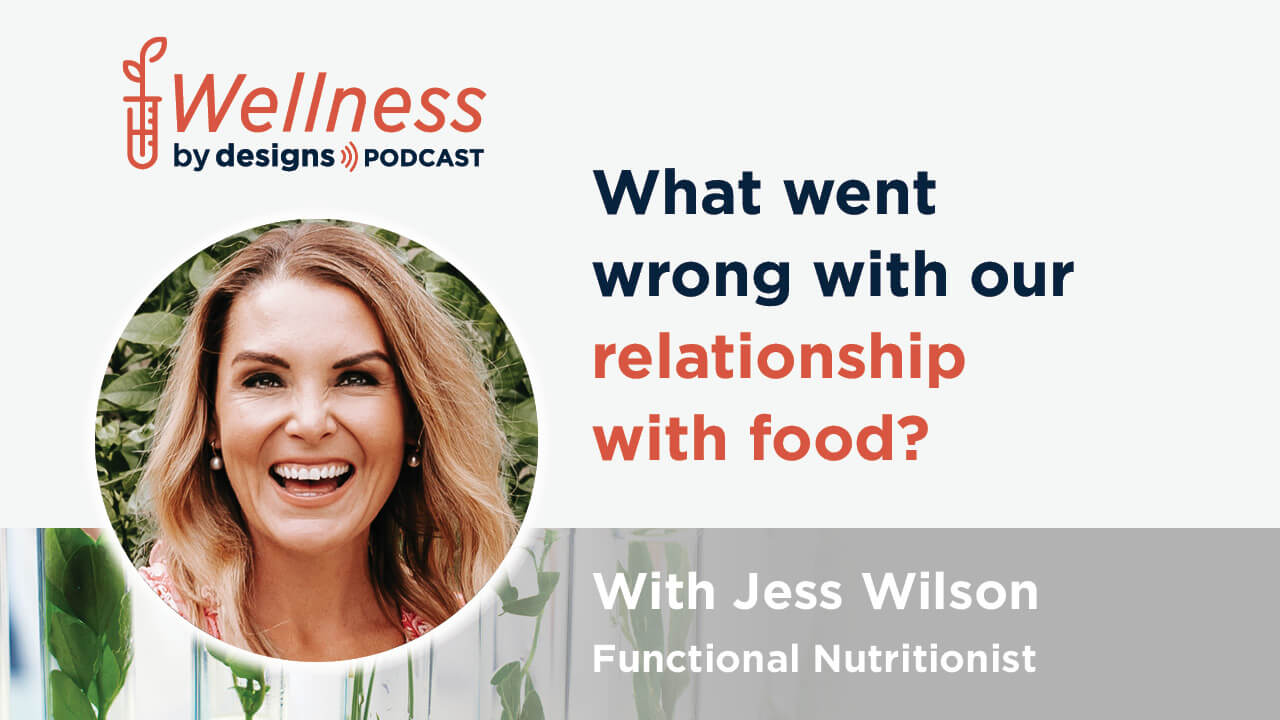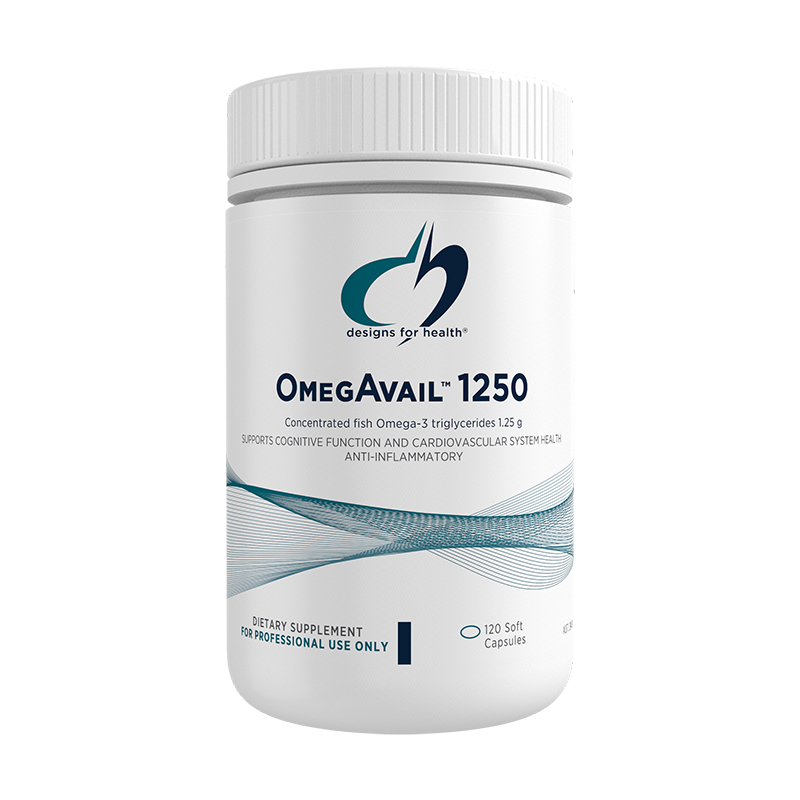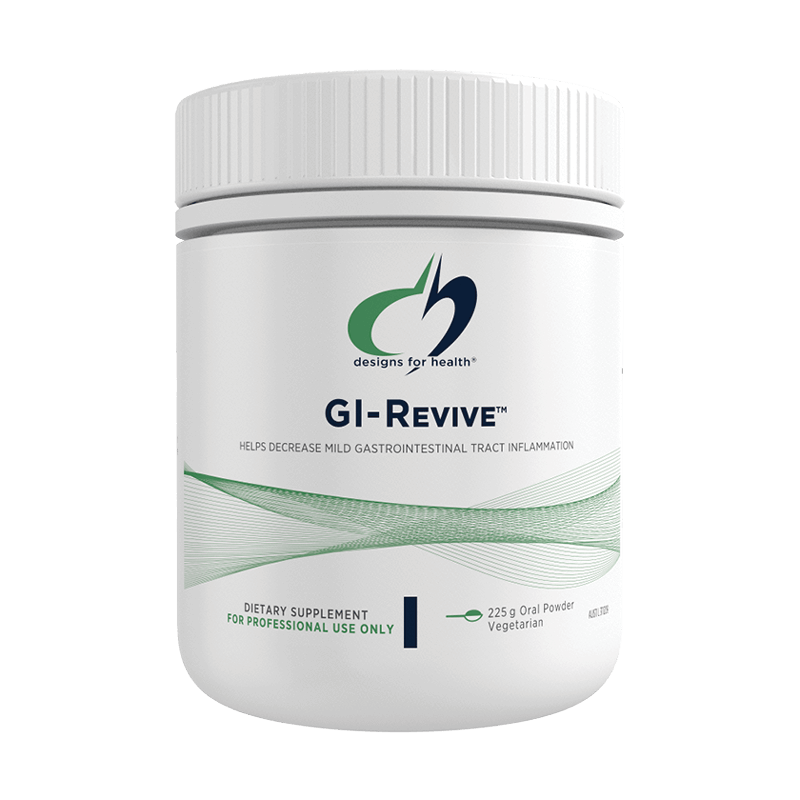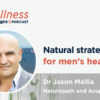

What went wrong with our Relationship with Food?
Joining us today is Jess Wilson, a functional nutritionist with a keen interest in our relationship with food and what went wrong with it.
In today’s episode, Jess discusses, what went wrong with our food relationship and when. We talk about biology and psychology around individuals relationship with food and touch on external influences that affect one’s relationship with food. Jess shares her 10 steps to heal your relationship with food and how to reconnect the brain and the body again.
About Jess Wilson:
Hi, I’m Jess, and this is me.
I believe the reason I was put on this planet is to inspire people to live a big, healthy, joyful life. Ever since I was little, I’ve been great at two things: doing hard stuff, and inspiring others. What I didn’t realise is that these two things would eventually become my destiny.
When my children were born I was faced with the hardest challenge of my life. They were sick – very sick – and at the hands of the medical system, I found myself in a four-year-long fight for their health that would very nearly break them (and me).
In the darkest of hours, with a fire of determination burning in my belly and my ever-present there’s-always-a-way attitude, I turned to the healing power of food to help us, and our world started to turn around.
I learned that the human body is capable of incredible things. I learned that taking responsibility for your health was the most powerful choice you could ever make. I learned that we are not invincible. That we do break. But that we can fix ourselves too. I learned that leading with love and following your heart meant learning to love yourself, too.
And that on the other side of the struggle is a big, healthy, joyful life. Now, I get to inspire others. I’m on a mission to take my story global and to lift people up.
I’m a Functional Nutritionist, Gut Health and Hormone Practitioner and All-Round Wellness Coach. I’m also a busy mum, an ocean lover and a runner… who loves to live a vibrant life (usually flying by the seat of my pants.)
My job is to help you put yourself back together, to see you happy and healthy again, And to teach you that this one big happy life we have is worth living, in the healthiest way.
Let’s work together. I want to see you win.
Connect with Jess
website: jesswilson.com
Instagram: jess_wilson_nutrition
Email: hello@jesswilson.com
Transcript
Introduction
Andrew: This is “Wellness by Designs.” And I’m your host, Andrew Whitfield-Cook. Today we’re joined by Jess Wilson, a functional nutritionist with a keen interest in our relationship with food and what went wrong with it. Welcome to “Wellness by Designs,” Jess. How are you going?
Jess: Thank you for having me. I’m really excited to be here today.
Andrew: Our absolute pleasure. Now, firstly, you say functional nutritionist, can you tell us a little bit about your history, and also your accreditation?
Jess: Sure. I think a functional nutritionist is really somebody who focuses on wellness from the inside out. So, we’re not just necessarily looking at eating healthy, we’re looking at nutrition on a cellular level, actually, working on piecing the body back together through the use of food. I did my study with the Nutritional Therapy Association, the NTA. They’re based in the U.S., but they have a school here in Australia. And I went on to do some advanced study through RWS, Restorative Wellness Solutions on gut health and hormones. Really, that’s just all titles in terms of what my accreditations are and what I do. But more than anything, I’m just really passionate about seeing people happy and healthy again. And that’s very much deeply rooted in my history and my journey. It brings me a lot of pleasure to do that.
Andrew: Now, when you say your history and your journey, you’ve got…I’m picking up a very distant South African accent there.
Jess: Many years ago, I think it’s 20 years ago now, Andrew, showing my age a little bit that I left, but I certainly do have some history there. It’s where I grew up. When I was younger, my mom and I were very poor. We grew our own vegetables, she baked her own bread. And I was, by all accounts what we thought extremely healthy in terms of the way that I ate. But there was a lot of grains and there was a lot of dairy, but it was milk straight from the farm that was delivered. Do you remember in the glass bottles with the old silver cap?
Andrew: Yeah.
Jess: We used to get the milk and the juice, and it was delivered at the bottom of the driveway with the cream on top back in the day.
Andrew: And you used to put the cream at the top. Yeah.
Jess: Yeah. I used to get the cream at the top. And that’s how I grew up. And because we were so poor, my mom really, really focused on growing as much of our produce as we could. So, I definitely started my nutrition routes early, but it wasn’t necessarily in the model of health as we know it today.
What went wrong with our relationship with food
Andrew: Okay. So, I guess firstly, it sounds so obvious to us in the natural therapy sphere. But what really went wrong with our food relationship? And I’m also going to ask a second part to this. When?
Jess: Yeah. Look, first of all, I think it’s important to identify what food really is. And we’ve forgotten that food… In my practice, I say food is only two things. It’s fuel for the body, and it’s healing. That’s pretty much in a nutshell as simple as we can get. And somewhere along the line, and we’ll talk about when in a minute. But somewhere along the line we’ve had all of this social conditioning, we’ve had the influence of the big food companies and the government, we’ve become so busy and so stressed in our lives, so we’ve become so disconnected with our bodies. And this relationship with food now is very much more around reward and punishment, or social occasions, or wanting to fit in, or using food as something that it essentially really isn’t.
And in terms of where that all started to break down, I suppose we can go back as far as when we started moving away from our primal lifestyle. The busier we got, the more there was the influence of the government and big food companies, the more that we industrialized things, that’s really where we lost that connection, I suppose to the land to where our food comes from. And intrinsically, we lost that connection to what our body actually wants and needs. We became a society of convenience and comfort, rather than food as a necessity and a daily tool.
Andrew: I totally agree with you. I think the most dangerous word for the human race is convenience.
Jess: Yeah.
How has food changed over time
Andrew: But I think about food, and what we term as food has changed so dramatically, even over the last, say 30 years. But I use the example of either milk or bread, staples who… sorry, staples which are used by those people that would denigrate natural medicine and naturopathy to say bread is absolutely fine for millions of people. Well, maybe it was, but wheat has changed in its genome. We’re now not just using wheat, we’re now adding certain vitamins. Why? Because the wheat is deficient. And also, we’ve got pesticides and things like that, that we have to…and preservatives that we have to now handle as well in that food. So, is food food?
Jess: What a great way to put it. And if food is not food, then how are our bodies recognizing that because you can’t hack the biology. There’s a lot of things that we can hack, but there’s some simple science there that we really can’t. Your body runs on nutrients, it’s designed to recognize certain foods. And if those nutrients are not coming through these food-like substances that we eat, your body’s not gonna know what to do with it. So, even that in itself is a disconnect in terms of our relationship with food. In my practice, part of what I teach in the space as my 10 steps to healing your relationship with food, is knowing where your food comes from. Actually, mindfully going, what am I eating? What is this food? Where might it have come from? And having that subconscious click back to those nutrients and what our body was designed to eat in that space.
Andrew: Okay. So, where do we go from here? What you just said about the packaging of foods. I can still remember my wife who works at the school telling us that a child that was billeted from the U.S., at no stage in his life had never… now, this was primary school, had eaten a fully made meal. Everything was pre-packaged, everything. So, when you talk about kids that don’t know where a potato is grown, or I think it was Jamie, forgive me, culinary chef, Jamie.
Jess: Jamie Oliver?
Andrew: Oliver. Jamie Oliver, who was showing kids foods, and they were identifying them as a totally different food. So, we’ve really lost that relationship.
Jess: We really have. And we touched on this convenience aspect earlier. When I do this work with my clients, we look at two different categories. We go, “Are you the convenience eater or the comfort eater?” And often we’ll swing between the two. But this element of convenience and the impact that our lifestyles are having on our relationship with food is so critical because many people see eating healthy as a chore. Having to cook yourself dinner suddenly becomes a hassle, it becomes a chore, it becomes something we don’t wanna do instead of looking forward to it as one of the most important parts of our day. So, the issue comes down to prioritizing the busyness of our daily lives versus the basic act of survival, which is eating the food that your body needs in order to function.
Is it Biology? The Psychology or Both?
Andrew: Okay. So, we’ve mentioned before the stressors of daily life in the 21st century, and I think it’s been spoken about in the last… I don’t know, 15, 20 years or so that stress, how they measured it, I don’t know, but stress has basically doubled. So, we certainly… our paced lives is certainly getting faster and faster and faster. Therefore, we’re reaching for more convenient foods. Then you talk about the biology of our needs, physiological needs and digestion, that sort of thing. So, do you deal with biology or psychology? Or both? How do you balance that?
Jess: Yeah. Classic chicken and egg approach. Do you fix the biology or the psychology first? And I think ultimately that the answer is both. Let’s paint the picture, for example, of somebody who is a sugar burner, somebody who’s reaching for sugar and carbohydrates every two hours. Their fuel is running on kindling, as they call it, the twigs on the fire up in a blaze of glory and then they go out. So, let’s look at somebody in that space in the biology or the psychology. Biologically, they are addicted to sugar. There is a neurological response there, there’s a blood sugar response there, there is some serious biology that needs to be balanced for that person to be able to control their willpower around it. Throw into that bucket poor sleep that’s gonna drive those sugar cravings and heightened stress levels, cortisol dysregulation. So, there’s the biology. But then when we look at the psychology of that person and they are a convenience/comfort eater, they’re on the run, they’re going from meeting to meeting, they’re screeching in the door at 6:30 or 7:00 at night. And then over the weekends, they’re likely going out and socializing and wanting to just let go.
Well, you’ve really got this picture of two completely different things going on. And one’s the body and one’s the brain, but there’s these external factors as well. So, in terms of what you fix, I really think it’s by individual independent on the client, but in the long run, you have to do both. You could start with the biology as a practitioner, balance the blood sugar, support the adrenals in the sleep, all that kind of stuff. But ultimately, at the end of the day, if you don’t get under the hood of the car and address that psychology behind it, well, how many times is that client gonna end up going around that hamster wheel again?
Addressing the Individuals relationship with food and external influences
Andrew: So, we can get, not caught up, but are we talking about an individual’s relationship with food here? Just that person, or are we talking about external influences here? For instance, where I’m going is the sugar industry has been caught red-faced, pants down, unequivocal, that they deflected the concerns over sugar to fat. And so, therefore, the health authorities at the time have then taken up the “fat is bad” message. And the sugar is bad message got left behind conveniently. That was not just an industry-driven thing, that was political because farmers were going through a drought and things like that. So, this goes to the highest echelons of power, doesn’t it?.
Jess: Absolutely. And I think that’s a critical point that you’ve touched on for people’s healing. In my seminars, I talk about the difference between responsibility and blame. And one has a very negative connotation leave you stuck somewhere and taking responsibility is very empowering. This falls into a similar category. Yes, the individual’s relationship with food, where have we gone wrong? How have we become so disconnected to our bodies? How has our lifestyle overtaken this? What emotional triggers are there for us in terms of food? All of those things have to be explored. But for those people who are really struggling to break the cycle, I say to them, “It’s not all your fault, there are external influences.” We’ve been conditioned in a sense. Think about the societal pressures. I’ll come back to the big food in a minute, Andrew, but think about the societal pressures. Sugar is reward and punishment, the classic 5:2 diet, “I’ll eat well, all week, and then I’ll socialize on the weekends.”
What about peer pressure? What about families who raised their children to eat everything on their plate, whether they were hungry or not? And perhaps that has an influence. And then, of course, you throw in government guidelines, you throw in vested interests, you throw in this conditioning and the media, and all the hype. Don’t forget not just around the fat versus sugar thing. But we’ve glorified these junk foods. We’ve put pizza on this pedestal, it’s like the pinnacle of your Friday night. And if you’re not eating pizza, then who are you? And people feel that and they don’t necessarily want to be the person that goes against the grain. They don’t… not everybody has the strength and stamina to be able to stand out from the crowd. So, I think it is a combination of the internal relationship with food and the external conditioning that we’ve been exposed to.
Andrew: Yeah. It’s really interesting. We’re all about being aware of body shaming. And I applaud those companies that are now using normal-sized models, both men and women to model their clothing. But what I think is really interesting is this, have you ever, ever seen a normal-sized human being with a soft drink or a pizza ad?
Jess: It’s completely unrealistic, isn’t it?
Andrew: Yeah. Pizza, the worst food that you could possibly consume with regards to insulin dysregulation.
Jess: Yeah, exactly right. And I think those pictures that get painted for us are so unrealistic. But people don’t realize how much it embeds in your subconscious. It’s not even necessarily your fault, you’re being fed these messages on a constant basis. And it puts you in a place not only when we want to conform, or we wanna eat those foods, or we wanna be the cool kid, or we don’t wanna say no. What it does is intrinsically I think in your brain, actually, mars or skews the natural understanding that we have of what our body needs because our innate intelligence knows. It knows exactly what you need to eat at any given minute of any given day. But when we’ve got all this noise, we’ve got all these messages coming in that’s confusing the system, we’re not able to tap into that anymore.
Andrew: How important is it to address these issues? It must be like waking somebody up from a trance. But how important is it to help awaken people to these issues? And I guess because I’m inclined to come to see a functional nutritionist or naturopath, always expecting these days to hear the words, “Don’t eat wheat and don’t drink dairy.”
Jess: Exactly. It goes so much beyond that now, and everybody gets very fearful of coming to a practitioner about their food because they go, “Oh, they’re just gonna tell me not to eat pizza anymore.” I think when we’re very much invested in seeing people win and getting them off the yo-yo and out of that cycle where they’ve done all these programs and they’ve tried before and they just can’t seem to sustain it. For me, this is the key missing piece. And it’s something that I explore with many of my clients in my practice. I think it’s absolutely critical as practitioners, that we are looking under the hood of the car and getting our clients to really explore this relationship. Because it’s one thing to fix the biology, it’s one thing to do the things and run the tests, and plug the holes, but it’s a completely another thing to change somebody’s life, to reconnect them back to their body. And that’s where the sustainability is, that’s where they don’t have to think about it anymore, that’s where they don’t end up on that yo-yo cycle again. So, for me, I think it’s absolutely critical.
Weight Management Tools
Andrew: When we’re talking about people eating healthfully, and I know this is only one condition, but let’s talk about weight management because it’s a massive issue. The two biggest reasons for people not embarking on a successful weight management program are time-poor and stress. And yet, these are the ones that totally undo them even if they do embark on a weight management program. They’re too stressed, and they’re time-poor. And to hell with it, just tonight. Just tonight, I’ll have that bad food. And then it’s like, “Oh, to hell with it.” So, they fall off the cycle. And this is known as the weight loss cycle. So, how do you change that? How do you refocus people to love making food?
Jess: This is where the deeper work really comes in. I laugh with my clients, and I go, “Be careful, you change your food, you change your life.” Often you’ll go through some major shifts in terms of your career, your relationships. It really opens up even just this avenue to our conditioning. And where we’ve landed, many of my clients with their social circles, realize that that’s contributing. So, it’s a very delicate area. We have to go slowly and we have to go at the pace that that client can handle. But I think ultimately, there’s a couple of simple things that it comes back to. One is, this sounds crazy, Andrew, but scheduling time in your day to eat. Actually, mindful eating. Actually, sitting down, understanding what you’re about to put in your body, looking at it,
smelling it, eating it mindfully. It’s such a simple practice. But if you can get someone to the point where instead of eating in the run while they’re on the meeting in the car, if you can get them to the point where for 10 or 15 minutes, they’re actually just sitting down and looking at their food. Not only are they consciously more aware of what they’re eating, but the subconscious starts to connect.
Andrew: Yeah.
Jess: We start to develop that connection back to ourselves going, “Hey, here’s a little moment where I’m gonna nourish my body, where I’m gonna give back.” It doesn’t have to be big. And you build on that. Obviously, biology is important, but those simple steps can be the very first thing in getting people to reconnect back and start thinking about what they’re eating. Moving on from that, one of the things that I love to talk with my clients about is losing this kind of concept that we have to be perfect, this all or nothing approach, right? I really think the all-or-nothing approach when it comes to healthy eating is what’s letting everybody down because they feel like if they don’t get it perfect, they’ve failed.
Andrew: It’s the guilt.
Jess: And I’m saying to people, this is a journey. Yeah, absolutely. It’s the guilt. So, it’s like, “Well, I can’t do it until next month because I’ve got this and this event.” Or, “Oh, well, I tried for a couple of days and I had one bad meal and so I gave up the whole thing.” We’ve really got to change this concept that you have to be perfect because there is no such thing as perfect nutrition. Those two simple things, and I’ve got these 10 steps that I use to healing your relationship with food. But those two things, practising mindful eating and losing the idea of perfection, that too very, very powerful triggers for your subconscious to start to reconnect.
Andrew: I certainly have to lose the idea of perfection when I’m cooking on the barbecue. Can we go through the other steps of your program please, Jess?
10 Steps to heal your relationship with food – changing ingrained habits
Jess: Of course. Yeah, absolutely. I’ll run through them one by one, I won’t dwell on them too much. But this could be really helpful for people. So, the first thing that we have to do is reconnect with our body. And in terms of how we do that, it’s literally just waking up in the morning and asking yourself, “What do I need today? How am I feeling? What is my body trying to tell me? What are the signs that I’m getting? Am I hungry? Am I bloated? Am I…?” Just being aware of what your body is trying to say. That’s the first thing. How is it communicating to you where it might be needing support?
The second thing that I teach is learning to feel your hunger. And there’s biological pros and cons and arguments to this in terms of, Andrew, our leptin and our ghrelin are hunger hormones that have gone all over the show. But ideally, we want people to get to the point where you’re eating when you’re hungry, and you’re stopping when you’re full. Your body has these mechanisms built-in. And it knows what to do, you’ve got to trust it. Now, sometimes there’s a bit of biological work to do first. Because if somebody comes to your practice and you say, “Eat when you’re hungry and stop when you’re full,” they’re not quite there yet, but it’s something that we’ve got to work on, is tuning into that hunger.
The third thing that I touch on is not using food as a reward and punishment. And this is one of the biggies. We reward our children with sugar, not me, but society. Every celebration is around sugar. And then once we’ve been shown that sugar, we punish ourselves for the next few days. Reward punishment, so that’s the cycle that we really have to look at. Practising mindful eating as we spoke about is number four. Actually sitting down and focusing on the food that you’re gonna eat. Number five is something that I love. Understand where your food comes from. And this is where that element of processed packaged convenience foods comes in. It’s actually just knowing what you’re eating and where it came from. There’s a subconscious trigger there.
Number six, stop the all-or-nothing approach. That was the other one that we talked about. Losing the idea of perfection, understanding that even the smallest of healthy changes are going to have a profound impact on your body, and let that be enough for you that day. That’s a really important one. Number seven, I talk about practising positive talk. Instead of saying, “I have to be on this diet” or “I can’t wait until I can eat pizza again.” You’re actually saying things like, “Look at those beautiful colours. I’m nourishing my body, I can’t wait to feel healthy and energized again. This is not a sacrifice, it’s helping me.” These are the things that we can start to reprogram into our thoughts to change that relationship with food on a deeper level in terms of not seeing healthy food as a chore.
Number eight, I repeat, you don’t need to be perfect. These small things that you’re doing all matter even if you’re just working on psychology and you haven’t even got to healthy eating. Yet. That’s okay. Number nine, I suggest to people journal the emotional snacking. Every time you’re reaching for those foods if you’re an emotional eater, write it down. What was the thought that was going through your mind? And I say to people, lose the attachment. When you eat the food or you don’t eat the food, don’t worry about it. Let’s just understand what you were thinking at that point. And when you journal that for not even a week, you start to see patterns. What’s the theme here? Is it fear? Is it stress? Is it fatigue? Is it overwhelm? Is it a lack of self-love or self-care? What’s the theme? And then that gives us the work that we have to do.
Andrew: Right.
Jess: And my number 10. My number 10, Andrew is just that’s the big truth bomb that comes in. Sometimes I’ve got to be… sometimes I got to be the hard one on my clients. I don’t like doing it, but number 10 is one body one life. That’s it. We don’t get another shot at this. We just don’t.
Andrew: No.
Jess: And nobody wants to hear it, but that’s honestly how it is. And we’ve worked through those 10 steps slowly, but I think out of that there’s something that everybody can adopt
Andrew: There was something very interesting that you said earlier on, and it ties so keenly into that emotional journaling. And that is you said the word binge-purge. Now, I’m thinking, not anorexia nervosa here, I’m thinking that it’s like bulimia on a population level.
Jess: Yeah. Yeah. Absolutely. And I think just touching on that subject, and I did say binge-purge. I’d like to clarify that it’s not always a physical act. Bingeing on these foods can not even necessarily mean just blowing out on a Saturday night, this can mean the whole over the year, I’ve eaten healthy half the time. But when I do eat rubbish, or when I do eat these poor foods, I’m not just having one or two, I’m going all out. So, it’s a behaviour pattern that bingeing, not necessarily what we think is a one-night stand. This is a behaviour pattern of excess. And then the purging side of it, Andrew, can I just touch on? Obviously, with things like bulimia, they are a physical purging. But let me tell you that I see extreme athletes who are purging through exercise, or I see people who are purging through starvation, “Oh, well, I’ve had such a big weekend, I’m just not gonna eat for the next three days.” So, that it’s the two extremes. One is the excess and the other one is that severe restriction.
Andrew: So, it goes… We could have a psychology lesson in control here of one’s own body. I have to ask, though, when you’re working through these 10 steps with patients, with clients, do you find that many, or at least some of them have an emotional catharsis when they get they trigger the whole reason that they’ve been eating on an emotional level, not just from now, but from something that happened years ago? Do you ever get that explosive, emotional deluge?
Jess: I love that you’ve asked me this question. And let me tell you 9 times out of 10, we don’t even get to doing the 10 steps because it’s simmering under the
surface. Almost every single one of my clients and I will have that moment. And it’s usually just because I’ve asked the question, and sometimes they’ll say things like, “What are you holding on to? Why is that food so important to you? What are you holding on to? Or what’s really driving all of this? If we could just stop talking about food for a minute and just talk about you, what’s really going on?” For many people, it’s so close to bubbling over already that it all just comes out. And the minute they have that realization that the relationship or their lifestyle or their childhood, or their social environment, or whatever it is, is the one thing that’s holding them back. Sometimes that’s enough.
Reconnecting the brain and the body again
Andrew: When we’re talking about antigen load from eating too much, just pure antigen load, when we’re talking about eating when stressed. So, we’re talking about these biological components of eating and meal times and that sort of thing. And then you’re talking about the stressors that are driving that. Are we really talking about reconnecting the brain with the body, the brain with the gut, the superhighway?
Jess: 100%. I think that’s the key here is that we’ve become so disconnected. It’s like our head is floating around up here and our bodies over here and the two are not talking to each other. 100% this is about reconnecting the body with the brain. But it’s more than just on a conscious level. It’s one thing to know what to eat, but on that subconscious level, like you said that gut-brain access when you’re constantly overloading your gut with foods and your gut is highly inflamed. Well, it’s talking to the brain via the inflammation highway, and you’re feeling brain foggy and a bit blue and depressed. So, this is definitely about doing it both ways. It’s about switching the brain on to what we’re eating, what we’re doing, how I’m nourishing my body, how if I arrived at this place, what are my triggers? So, it’s switching the brain on, and then it’s switching the body on biologically. And the way that we do that, first and foremost is with the right foods, long before we get to supplements and all of those sorts of things. So, biologically, we put the right things in, psychologically, we start to understand what’s going on. And then working on both of them is ultimately the key to healing and success.
Supplements to assist
Andrew: You mentioned supplements there, and we’re talking about at some stage, you have to adjust the biology. What supplements do you find of use? The things that are going around my brain are chromium and bitter melon, and things like that just very quickly. But what do you tend to employ?
Jess: It’s a tricky one to answer because I work with hundreds and hundreds and hundreds of different supplements. I’m very bio-individual when it comes to that.
Andrew: Good.
Jess: Andrew, my answer to you on that is it depends on which foundation is broken. So, for example, if we’ve got a gut/brain axis going on, then we’ll go down the route of gut healing. If it’s a blood sugar issue, if we’re a sugar burner and we’re up and down, we might look at things like berberine, we might look at Gymnema for the cravings, we might look at chromium, we might look at the B vitamins as…well, I don’t know. There’s a whole bunch of them if it’s an adrenal override. Maybe we’re just running on cortisol 24/7, then we’d be looking at adrenal supports. So, I’m always in my clients looking for what’s the override in the body right now? What is the priority for healing right now? Generally, because I’m a gut health expert, I like to start with the gut, but we’re always looking at what area of the body needs the most support right now.
Andrew: Do you teach other practitioners about what you’re doing with your 10 steps?
Jess: No. I think we’re all so busy trying to help people we don’t end up talking about it much.
Andrew: Seems like you need to write a course.
Jess: As you said, thank you for raising it though. Yeah. No. Well, actually thank you for raising that. I’m relaunching some exciting things this year. And this relationship with food, I’ve delivered in quite a few seminars, and it’s something that I want to niche and actually deliver across the board because I just feel like it’s such an important part for people. We’ve all been through it.
Andrew: Yeah. Absolutely. Jess, you’ve got such an interesting story and I love your approach. It’s so non-judgmental, which is great, but very needed. Would you be amenable to join us back on “Wellness by Designs” for another topic?
Jess: I would absolutely love that. Thank you.
Andrew: We’ll get you back soon. And thank you so much for joining us. This was great. Some very key points that I think we really need to be aware of. It’s so easy to skip over them with not just our clients and patients, but ourselves being so stressed and caught up with the daily activities. And you’re obviously very mindful of not just you but the patient. Very interesting concepts. I’d love to have you back.
Jess: Thank you.
Andrew: And thank you for joining us today on “Wellness by Designs.” Remember that you can get all the show notes and the other podcasts at designsforhealth.com.au or your favourite podcast app. I’m your host, Andrew Whitfield-Cook and this is “Wellness by Designs.”








 Exploring Integrative Dentistry with Dr Ron Ehrlich
Exploring Integrative Dentistry with Dr Ron Ehrlich Essential Insights into Gallbladder Function and Care with Amie Skilton
Essential Insights into Gallbladder Function and Care with Amie Skilton Natural Strategies for Men’s Health with Naturopath Jason Mallia
Natural Strategies for Men’s Health with Naturopath Jason Mallia